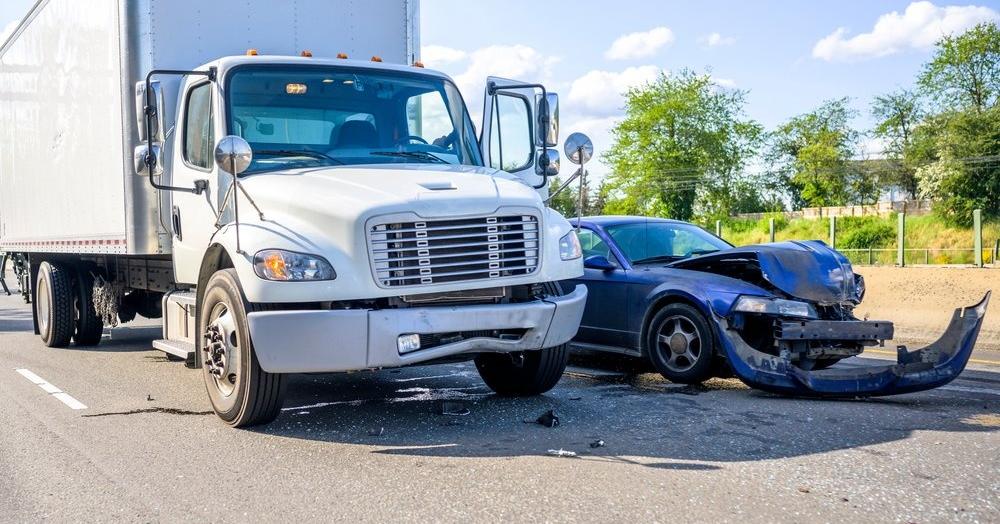Truck accidents can leave victims with serious injuries and damage considering how big the vehicles are. It’s important to determine who is at fault during the accident to receive money from insurance. In the state of Florida, just as in other states, establishing fault involves a comprehensive evaluation of various factors. You want to make sure you know the process of fault determination in Florida after a truck accident so you don’t miss out on anything that you’re owed. This will help you point out who is responsible for getting your claim moving along.
Factors Influencing Fault Determination
1. Traffic Regulations: One of the primary factors examined when determining fault in a truck accident is whether any traffic regulations were violated. These include following the basic rules of the road. Following obvious street signs and staying within the speed limit. Which is required for all drivers. If a truck driver disregards any of these rules, they might be held accountable for the accident.
2. Driver Negligence: Negligence on the part of the truck driver can significantly contribute to the determination of fault. If they aren’t keeping their eyes on the road, then they can be held liable. Evidence of such actions can weigh heavily in establishing fault. You need to prove that these things happened that caused the accident. Drivers need to be held responsible, especially truck drivers.
3. Vehicle Maintenance: In some cases, accidents are caused by mechanical failures or issues related to poor vehicle maintenance. Which is what they are supposed to be doing with their trucks. If it is determined that the trucking company failed to properly maintain the vehicle, resulting in the accident, they could be considered partially or fully at fault. They are trained by their employers to do so. If they aren’t keeping track of what’s going on with their truck, then they need to be held responsible.
4. Weather Conditions: Weather conditions can cause accidents with ease. However, this factor is considered alongside other circumstances. Though you can’t control the weather, you can pay attention to how you’re driving. If a driver fails to adjust their driving behavior to account for adverse weather conditions, their negligence might contribute to the accident. This can cause issues for everyone on the road. Accidents can be avoided if the truck driver is following their duty of care.
5. Load Securement: Trucks are constantly carrying cargo. If drivers are not properly securing their materials, then they can be held responsible. Things can fly out on the road, causing drivers to swerve into each other to avoid it. If it is found that the accident was a direct result of the load not being adequately secured, the responsibility could fall on those responsible for loading the truck. Make sure to keep track of the evidence if you feel this is the case.
6. Right of Way: Determining which vehicle had the right of way at the time of the accident is crucial. If a truck driver fails to yield the right of way or ignores traffic signs, they could be found at fault for the collision. Make sure you are looking both ways before making your way on the road. Trucks are bigger vehicles and will take you off the road. Truck drivers need to pay extra attention to the area and make sure they aren’t making assumptions.
7. Evidence from the Scene: Gathering evidence from the accident scene is pivotal in establishing fault. Take pictures of the accident with everything in it. Talk to witnesses who saw the whole thing and take down their information. Don’t say anything that could be used against you. These pieces of evidence can provide insight into the sequence of events and help recreate the accident scenario.
8. Electronic Logging Devices (ELDs): Commercial trucks are often equipped with Electronic Logging Devices that track driving hours and patterns. This is where you can see if the driver was following proper regulations. If you can see they weren’t, then you can add this to your case. Truck drivers are supposed to be following the rules. If they weren’t, it can cause serious accidents for drivers around them.
The Comparative Fault Rule
Florida operates under the “pure comparative fault” rule, which affects how fault is assigned and damages are awarded. This means even if you were slightly at fault, you won’t be missing out on compensation. However, their awarded damages will be reduced by the percentage of fault assigned to them. So, you won’t be getting a lot of money if you had anything to do with the accident. For instance, if a plaintiff is deemed 20% responsible for the accident, their compensation will be reduced by 20%. This rule is put in place to help those with financial struggles after the accident and keep them afloat.
Bottomline
In the aftermath of a truck accident in Florida, determining fault is a complex process that requires careful evaluation of various factors. Truck drivers need to pay attention to the road and weather to keep everyone safe. Their vehicles can cause the most damage to smaller cars, so they need to follow the rules. It’s important to receive compensation for the accident if you were involved with one. Reach out to a legal team in your area to get your case moving. They understand how the system works and make sure it works in your favor.

